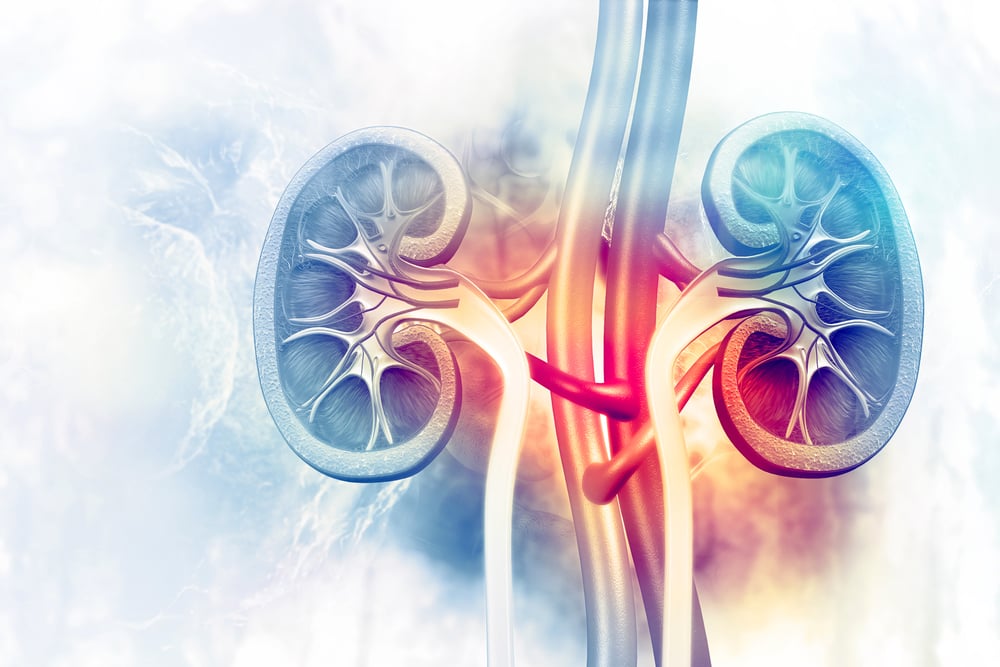Swedish company Calliditas Therapeutics AB has announced positive topline results from the global, randomized, double-blind, placebo-controlled phase 3 clinical trial investigating the effect of Nefecon (TARPEYO/Kinpeygo (budesonide) delayed release capsules) versus placebo in patients with primary IgA nephropathy (IgAN).
Calliditas share prices rose 30% in the aftermath of the announcement.
IgAN, or Berger’s disease, is a rare, progressive, chronic autoimmune disease that attacks the kidneys. The kidney disease mainly affects young adults. In IgAN, the protein immunoglobulin A (IgA) becomes trapped in the fine filters of the kidney (glomeruli), causing damage and scarring to the whole kidney.
IgA is normally present in the bloodstream. Its main role is to fight infections throughout the body. However, in patients with IgAN, the body’s immune cells produce abnormally formed IgA. Around 30% of IgAN patients go on to lose kidney function and require a transplant, or require a lifetime of dialysis.
Trial results
The clinical trial, an important milestone in kidney disease research, met its primary endpoint, with Nefecon demonstrating a highly statistically significant benefit over placebo in estimated glomerular filtration rate (eGFR) over the two-year period of nine months of treatment with Nefecon or placebo, and 15 months of follow-up off the drug.
The eGFR benefit was observed across the entire study population, irrespective of urine protein-to-creatinine ratio (UPCR) baseline, which the company believes supports a regulatory filing for full approval in the study population.
UPCR reductions observed were durable, reflecting a long lasting treatment effect during the 15-month follow-up period off treatment.
“This is truly a great outcome for IgAN patients. This reflects sustained impact on kidney function across the entire study population with a treatment which was specifically designed to treat IgAN by downregulating pathogenic IgA1 antibodies at their presumed source and we believe this dataset supports regulatory filing for full approval based on the phase 3 study population,” said Calliditas CEO, Renée Aguiar-Lucander.
“These data show the kidney function protection delivered by Nefecon and demonstrate that the approach offers patients a truly disease modifying treatment with sustained reductions in proteinuria over two years and continued eGFR benefit. Importantly, Nefecon was well tolerated and together with the proteinuria and eGFR data mean that Nefecon has cemented its place as a key treatment option for patients with IgA nephropathy at risk of progressive kidney function loss,” said Jonathan Barratt, Mayer Professor of Renal Medicine at Leicester University in the U.K.
“These data establish that there is an option for patients with IgA nephropathy to specifically target their illness and to safely slow and delay progression of their kidney disease. The sustained effects on proteinuria and on eGFR are impressive and clinically meaningful,” added Richard Lafayette, professor of Medicine (Nephrology) at Stanford University.
Calliditas received accelerated approval from the U.S. Food and Drug Administration (FDA) in December 2021 and conditional marketing authorization from the European Commission (EC) in July 2022, marking the first time a drug was approved for the treatment of IgAN in the U.S. and the European Economic Area (EEA). Nefecon is being marketed by Calliditas in the U.S. under the brand name TARPEYO, and by STADA Arzneimittel AG in the EEA, Switzerland and the U.K. under the brand name Kinpeygo.
Calliditas filing for full approval
“I am delighted with the positive outcome of the NefIgArd trial. This important milestone is the culmination of many years of hard work and dedication from so many people involved in the study,” said Calliditas’ CMO, Richard Philipson.
Calliditas now plans to file for full approval from the FDA, and support filing for full approval with the EC and U.K.’s MHRA during 2023 for patients with primary IgAN based on the phase 3 study population.
The results indicate that Nefecon was generally well-tolerated and the safety profile was consistent with that observed in Part A of the trial.
The trial is expected to conclude in Q3 of 2023 when the final 29 patients in China (not required for global submission purposes) have completed nine months of treatment and 15 months of observation.





